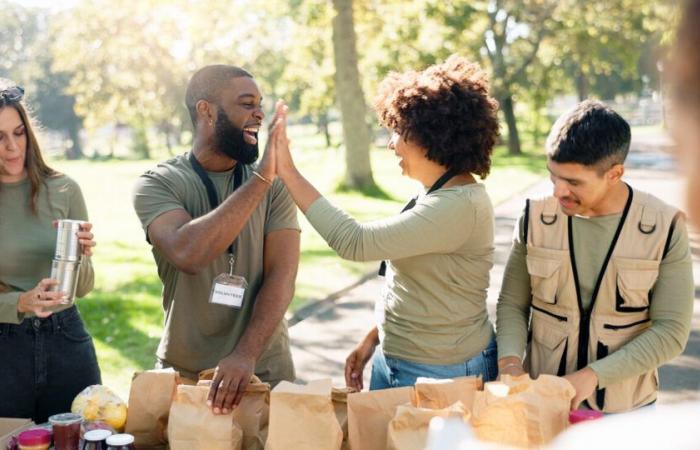Age is not just one number, but many numbers! L'chronological age corresponds to the one dictated to us by our birth record, but there are also other versions. L'epigenetic age is that observed at the level of genes, and therefore depends on genetics, but also on the environment and lifestyle habits. As for the brain, it has five age groupswhich change with brain functions.
If we cannot change our chronological age, we can help to slow down aging of our body and our brain! To do this, lifestyle (diet, physical activity, stress, etc.) plays a big role. But science also reveals to us how to use our time wisely in order to age more slowly: here are three activities whose benefits you might not suspect.
Volunteer
Help others helps you too! A recent American study published in the journal Social Science & Medicine looked into the effects of volunteering on health. The scientists based themselves on data from the Health Retirement Study, conducted every two years on 20,000 Americans over the age of 50.
The results observed clearly show a link between the practice of volunteering and the slowing down of aging, particularly among retired people. Between 50 and 199 hours of volunteering every year, i.e. one to four hours per weekare beneficial for this category of population. Beyond four hours per week, the effects are also visible in people who work. To evaluate this phenomenon, the researchers based themselves on several DNA measurements. As a result, epigenetic age tends to increase less quickly in volunteers.
How to explain this phenomenon? Volunteering allows you to maintain physical activityeven moderate, at a regular pace. This factor is very important when we know the negative effects of a sedentary lifestyle on health and aging. In addition, this activity increases the social interactionsgood for cognitive and mental health.
Learn a new language
All learning is beneficial for cognitive functions and thus slows down brain aging. This is particularly the case when we learn a new foreign language. The effects are the same whether it is a regional dialect or a language used internationally!
This type of learning helps to “strengthen” the brain, and at any age. A University of Pennsylvania study observed the effects of teaching Chinese to 39 English speakers over six weeks, concluding that this activity strengthens brain network connections. Other research has linked bilingualism to a lower risk of developing Alzheimer's disease. Indeed, speaking several languages makes functions like memory, reasoning and problem solving. This flexibility therefore maintains cognitive functions, which then decline less quickly.
Play !
The effects of crosswords or sudokus on memory andbrain age are no longer to be demonstrated. But it's not the only type of game that helps you age more slowly: in reality, all types of games have benefits!
Board games, video games and online games all allow you to do work on your cognitive functionsin order to slow their decline. Special mention for the puzzles, whose effects are as important as crosswords. Finally, outdoor games allow you to maintain physical activitywhich helps slow down the aging of the body and prevent the onset of diseases, thus increasing life expectancy.






